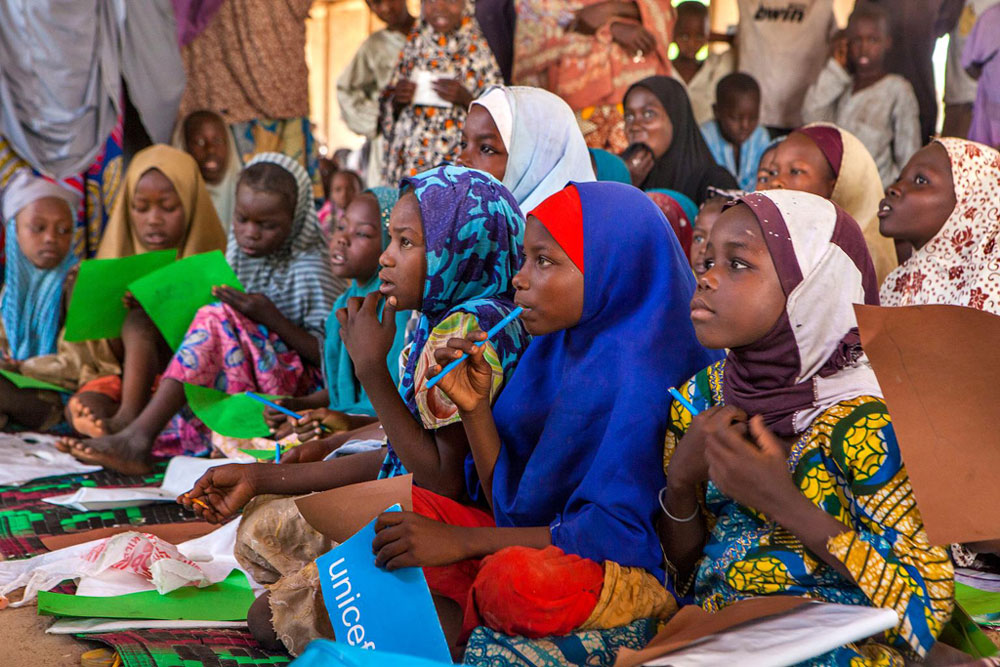More than half the schools in the state at the epicentre of Nigeria’s conflict with Islamist militant group Boko Haram are still closed, the United Nations’ children agency said on Friday, as the insurgency drags into its ninth year.
The lack of schools could continue to fuel Boko Haram or similar movements in the future as it means young people in the restive northeast region have few prospects, experts say.
The conflict with Boko Haram, whose name roughly translates as “Western education is forbidden” in the Hausa language that is widely spoken in northern Nigeria, has killed more than 20,000 people since 2009.
It has embroiled the region in one of the world’s worst humanitarian crises, with at least 10.7 million people in need of assistance, according to the United Nations.
“In addition to devastating malnutrition, violence and an outbreak of cholera, the attacks on schools are in danger of creating a lost generation of children, threatening their and the countries’ future,” Justin Forsyth, a deputy director for the United Nations Children’s Fund (UNICEF), said in a statement.
More than 57 percent of schools are shut in Borno state, where most of the conflict and resulting crisis have taken place, as the new academic year begins, the statement said.
More than 2,295 teachers have been killed, at least 19,000 displaced and almost 1,400 schools destroyed, UNICEF said.
Forsyth later said in an interview that three million children in the northeast required some form of education, adding that some attended rudimentary schools.
He said Borno state government had returned about 750,000 children to school, but gave no details about the period of time over which they returned.
On the issue of educating children who had been recruited to fight in the conflict, Forsyth said military and state government officials had agreed to the release of 600 children and mothers next week.
“This is also a process of rehabilitation because these children have been traumatised,” he said.
Despite aid agencies’ efforts to set up schools for children in the northeast, particularly those displaced by the insurgency, UNICEF said it has only received three-fifths of the total funding it needs for 2017.
Combined with climate change taking its toll in recent years on farming, a mainstay of the region, the lack of schooling has left many without job opportunities. (Reporting by Paul Carsten and Lanre Ola in Maiduguri, editing by Larry King and Gareth Jones).












